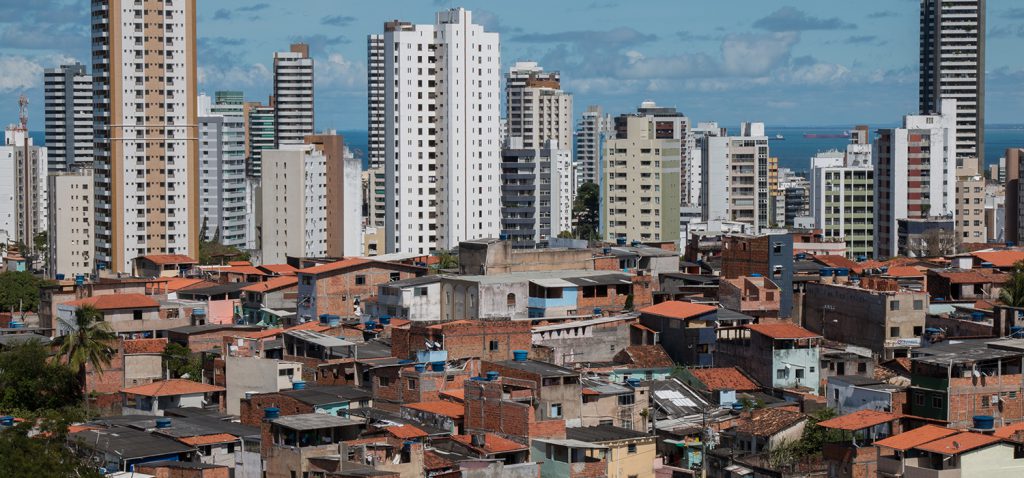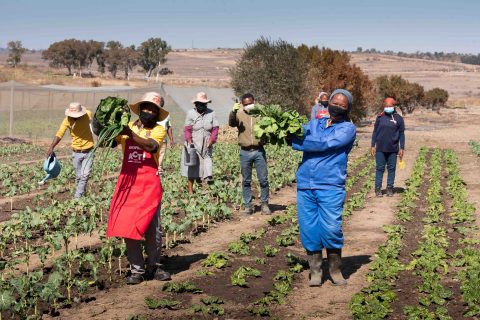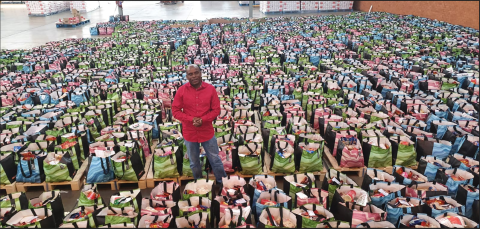Made in SA
The Inequality Gap Continues To Grow
‘Public Good or Private Wealth’ shows the growing gap between the rich and the poor is undermining the fight against poverty, damaging our economies and fuelling public anger across the globe, the report said. It reveals that governments are exacerbating inequality by underfunding public services, such as healthcare and education, on the one hand, while under taxing corporations and the wealthy, and failing to clamp down on tax dodging, on the other. It also finds that women and girls are hardest hit by rising economic inequality.
Winnie Byanyima, executive director of Oxfam International, said: “The size of your bank account should not dictate how many years your children spend in school, or how long you live – yet this is the reality in too many countries across the globe. While corporations and the super-rich enjoy low tax bills, millions of girls are denied a decent education and women are dying for lack of maternity care.”
The report also revealed that the number of billionaires had almost doubled since the financial crisis, with a new billionaire created every two days between 2017 and 2018, yet wealthy individuals and corporations were paying lower rates of tax than they had in decades.
- Getting the richest one percent to pay just 0.5 percent extra tax on their wealth could raise more money enough to educate the 262 million children out of school and provide healthcare that would save the lives of 3.3 million people.
- Just four cents in every dollar of tax revenue collected globally came from taxes on wealth such as inheritance or property in 2015. These types of tax had been reduced or eliminated in many rich countries and were barely implemented in the developing world.
- Tax rates for wealthy individuals and corporations had also been cut dramatically. For example, the personal income tax in rich countries fell from 62% in 1970 to just 38% in 2013. The average rate in poor countries was just 28%.
- In countries such as Brazil, the poorest 10% of society were currently paying a higher proportion of their incomes in tax than the richest 10%. At the same time, public services were suffering from chronic underfunding or being outsourced to private companies that excluded the poorest people. In many countries a decent education or quality healthcare has become a luxury only the rich can afford. Every day 10,000 people die because they lack access to affordable healthcare.
- In developing countries, a child from a poor family is twice as likely to die before the age of five than a child from a rich family. In countries like Kenya a child from a rich family will spend twice as long in education as one from a poor family.
Cutting taxes on wealth predominantly benefits men who own 50% more wealth than women globally, and control over 86% of corporations. Conversely, when public services were neglected poor women and girls suffered most. Girls are pulled out of school first when the money isn’t available to pay fees, and women clock up hours of unpaid work looking after sick relatives when healthcare systems fail. Oxfam estimates that if all the unpaid care work carried out by women across the globe was done by a single company, it would have an annual turnover of $10 trillion – 43 times that of Apple, the world’s biggest company.
“People across the globe are angry and frustrated. Governments must now deliver real change by ensuring corporations and wealthy individuals pay their fair share of tax and investing this money in free healthcare and education that meets the needs of everyone – including women and girls whose needs are so often overlooked. Governments can build a brighter future for everyone – not just a privileged few,” added Byanyima.






 Sign-up and receive the Business Media MAGS newsletter OR SA Mining newsletter straight to your inbox.
Sign-up and receive the Business Media MAGS newsletter OR SA Mining newsletter straight to your inbox.